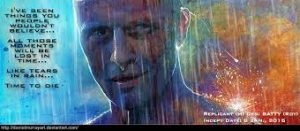Remember what philosophy was always about? How do we live well, was the question that drove Greek philosophers like Plato. For he and many other thinkers, the good life wasn’t about things like pleasure, wealth, or power. But we don’t necessarily have to suffer for virtue, or examine every aspect of our actions either, to meet some high falutin’ expectations. Given there isn’t much time left before TSHTF* and our descent towards extinction speeds up like a downward pointing exponential graph, i thought it might be worth coming up with some definitions for this that make sense right now.
Certainly starting out with a dedication to living in the moment seems like as good a place as any to mint a philosophy for living with the expectation of NTHE. But what could the Good Life possibly be when we are witnessing the sixth mass extinction event (or, as Justin McBrien put it, the first extermination event)? While Justin’s take seems pretty spot on to me, in terms of “capitalism’s logic of eco-genocidal accumulation”, his time frame is limited to the last 500 years of supercharged colonisation. Mine takes into account the 10,000 year project of land grabs since the agricultural revolution and leads to the grief of realising we cannot stop this train wreck anymore. I hope you will find my response offers a little more richness and depth than the Western “maudlin navel-gazing elegies” for civilisation that Justin critiques.
Let me regale you, briefly for now, with the possibility that a Zen Animist approach, along with one of the most ancient arts of humankind – storytelling – can give you some worthy answers. Zen is commitment to the reality of the moment, which makes things pretty challenging when your current circumstances include megafire or a whole new era of floods and superstorms. I’ve had both on my doorstep in southern NSW, Australia, so i speak with a little experience. But it is attachment to life that leads to increased suffering, when we really face death. Appreciating that the whole human experience was a gift in the first place, with no promises, helps alleviate this kind of anxiety.

A Zen approach also offers the recognition that life is but a dream (yeah, Shakespeare said the same). The entire universe flows into being out of the great nothingness and it flows back there eventually too, just as the Existentialists and Nihilists saw. But we don’t find a home in ultimate darkness either, because matter is reformulated ad infinitum. Physics teaches us this; there is only energy, recycling. What makes us any different?
Consciousness, perhaps. But what is consciousness, if it is not practised upon self-awareness? When we do this, we can experience ourselves as primates that know we exist; no matter how dreamlike and destined to end, we live. It’s worth celebrating (here’s an operatic metal version). Out of the oceans of eternity, on this incredibly rare planet with all it takes to create forests, rivers, mountains and seas, plant and animal life, us … it is a pretty momentous opportunity. But my animistic bent leads me to sense, to experience, that it is more even than the infinitesimal mathematics or physics behind our fortune that should be immortalised in song.
Immortalised! What a word. I used to believe i could write to the classics, compose for posterity, hear the Muses and sing their song of the earth and the stars in a way that could stands the test of time … now, there seems no human future in which my words might have joined Homer, Virgil, the Mesopotamian poets or the Druidic bards. They will all be lost, like tears in the rain, as Blade Runner Roy Batty opined in the 1982 sci-fi classic. But time to die, this time, means all of us, and everything, history and nature. Like many tree hugger types, i mourn for the animals, plants, and landscapes that go with us, as much as for the human race. (Sure, hopefully the microbes can survive, but that doesn’t make me feel any better about the snow leopards, toucans, hopping mice or dolphins.)

The question of whether or not we will get what we deserve is a subject for another meditation. For now, the certainty i set out to secure for this grave moment is that i live, i have the fortune to have incarnated as a self-aware primate. I celebrate this opportunity, i chop wood and carry water, with no hope for the future, no attachment to any outcome. Yes, this would be easier without kids, but even with them, i reiterate: they get a chance too, even if their lives will be cut too short. (Mine are 10 and 12, no chance of a long life left to them.) What do i do every day with my Zen Animist philosophy? I give thanks.
*NTHE Glossary #2: TSHTF = The Shit Hits the Fan.
Geoff joined the Melbourne Zen Group in 2002 and served as Chairperson 2005-2008. He’s always been an animist. He has a handful of degrees in philosophy and literature and currently trains holistic psychotherapists and ecopsychotherapists.
If you got something out of this post, please Like, Subscribe, Share etc. It’s nice to have company on the downward slide.

